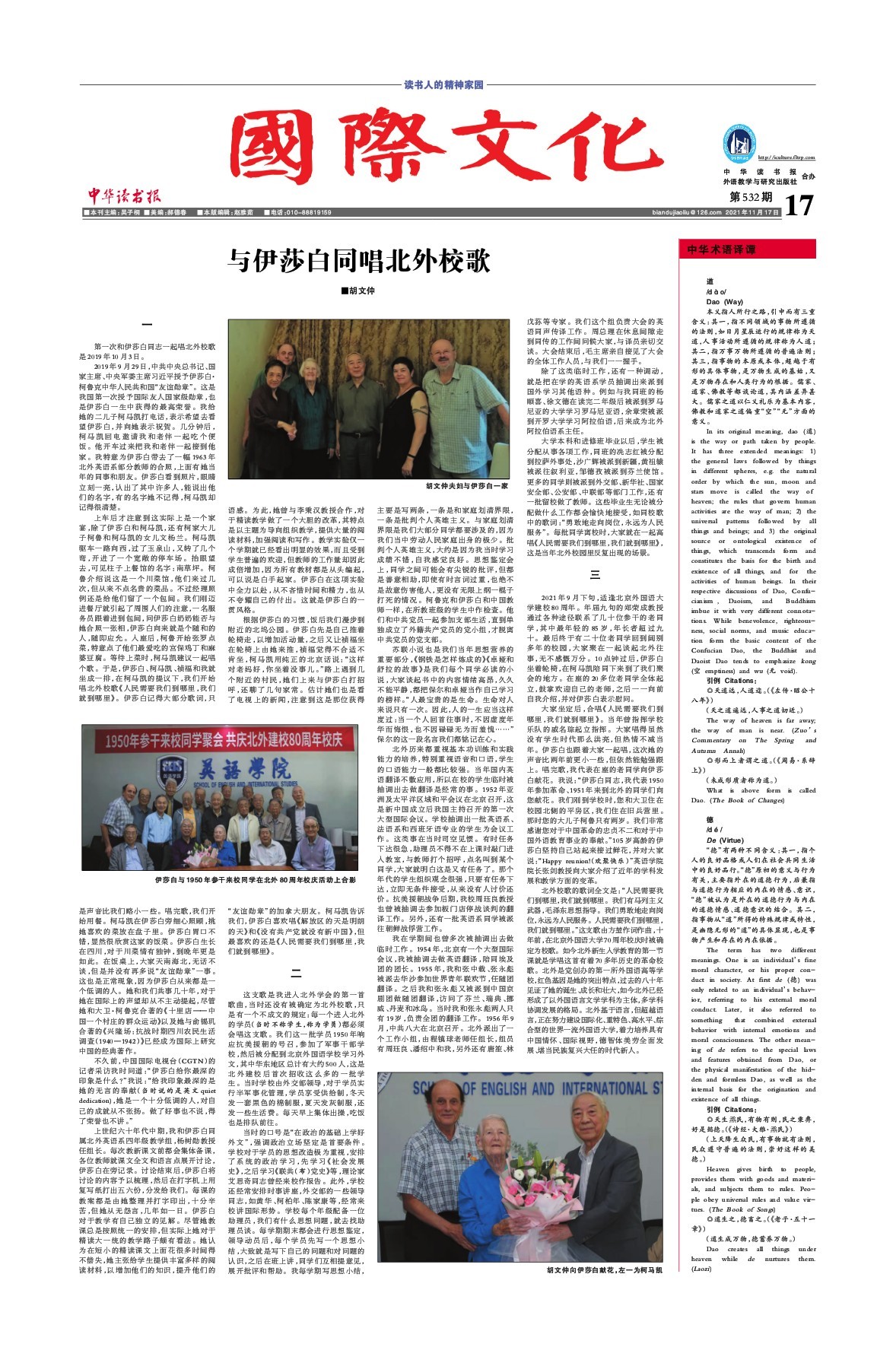道
/dào/
Dao (Way)
本义指人所行之路,引申而有三重含义:其一,指不同领域的事物所遵循的法则,如日月星辰运行的规律称为天道,人事活动所遵循的规律称为人道;其二,指万事万物所遵循的普遍法则;其三,指事物的本原或本体,超越于有形的具体事物,是万物生成的基始,又是万物存在和人类行为的根据。儒家、道家、佛教等都谈论道,其内涵差异甚大。儒家之道以仁义礼乐为基本内容,佛教和道家之道偏重“空”“无”方面的意义。
Inits original meaning, dao (道)is the way or path taken by people.It has three extended meanings: 1)the general laws followed by things in different spheres, e.g. the natural order by which the sun,
moon and stars move is called the way of heaven; the rules that govern human activities are the way
of man;2) the universal patterns followed by all things and beings; and3) the original source or
ontological existence of things, which transcends form and constitutes the basis for the birth and
existence of all things, and for the activities of human beings. In their respective discussions
of Dao, Confucianism,Daoism, and Buddhism imbue it with very different connotations.
While benevolence, righteousness, social norms, and music education form the basic content of the
Confucian Dao, the Buddhist and Daoist Dao tends to emphasize kong(空 emptiness) and wu (无 void).
引例 Citations:
◎天道远,人道迩。(《左传·昭公十八年》)
(天之道遥远,人事之道切近。)
The way of heaven is far away;the way of man is near. (Zuo’s Commentary on The Spring and Autumn Annals)
◎形而上者谓之道。(《周易·系辞上》)
(未成形质者称为道。)
What is above form is called Dao. (The Book ofChanges)
德
/dé/
De (Virtue)
“德”有两种不同含义:其一,指个人的良好品格或人们在社会共同生活中的良好品行。“德”原初的意义与行为有关,主要指外在的道德行为,后兼指与道德行为相应的内在的情感、意识,“德”被认为是外在的道德行为与内在的道德情感、道德意识的结合。其二,指事物从“道”所得的特殊规律或特性,是幽隐无形的“道”的具体显现,也是事物产生和存在的内在依据。
Theterm has two different meanings. One is an individual’s fine moral character, or his proper conduct in society. At first de (德) was only related to an
individual’ s behavior, referring to his external moral conduct. Later, it also referred to something that
combined external behavior with internal emotions and moral consciousness. The other meaning of de
refers to the special laws and features obtained from Dao, or the physical manifestation of the
hidden and formless Dao, as well as the internal basis for the origination and existence ofall things.
引例 Citations:
◎天生烝民,有物有则,民之秉彝,好是懿德。(《诗经·大雅·烝民》)
(上天降生众民,有事物就有法则,民众遵守普遍的法则,崇好这样的美德。)
Heaven gives birth to people,provides them with goods and materi-als, and subjects them to rules. Peo-ple obey universal rules and value vir-tues. (The Book ofSongs)
◎道生之,德畜之。(《老子·五十一章》)
(道生成万物,德蓄养万物。)
Dao creates all things under heaven while de nurtures them.(Laozi)



 上一版
上一版


 缩小
缩小 全文复制
全文复制 上一篇
上一篇